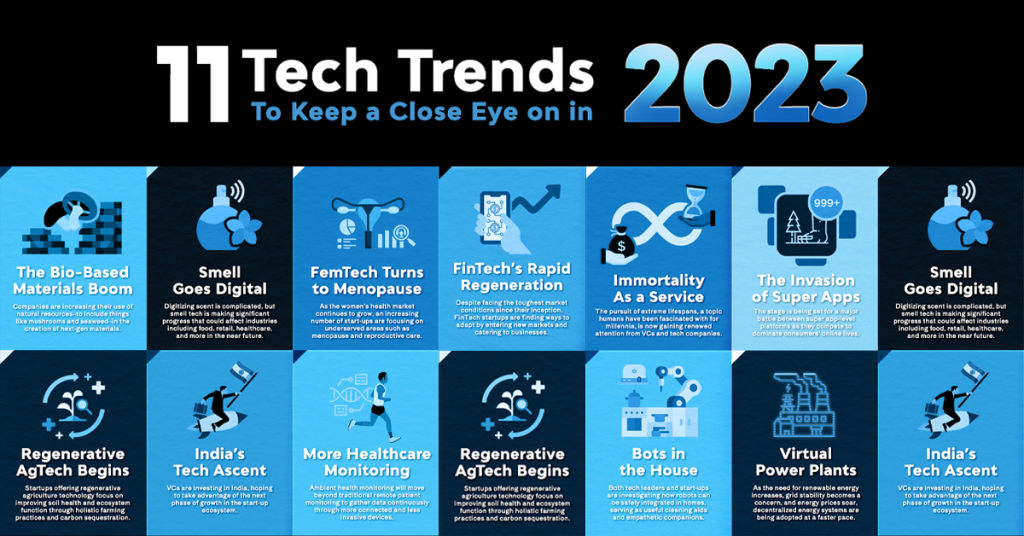

The future of travel is rapidly evolving, and several exciting innovations and trends are shaping the way we experience journeys. Whether it’s the rise of personalized travel experiences or the increasing emphasis on sustainability, the industry is on the cusp of a transformative era. For travelers, this means a greater selection of options tailored to individual preferences and needs. But this evolution also presents challenges—how can we balance accessibility with environmental concerns? This article delves into the key innovations and trends impacting the future of travel, exploring how they address these concerns and create a more enriching and sustainable travel experience for everyone.
Personalized Travel Experiences
Tailored Journeys for Every Traveler
The future of travel is undeniably moving towards highly personalized experiences. Travel companies are leveraging data and technology to understand individual preferences, needs, and desires. This allows for the creation of unique itineraries, customized recommendations, and bespoke services to meet the specific requirements of each traveler. This is particularly appealing to a younger demographic who value tailor-made trips over generic package tours. Airlines and hotels, for instance, are developing sophisticated algorithms to predict traveler preferences based on past behavior, social media activity, and travel history. This data-driven approach is not only convenient but also contributes to a more efficient and enjoyable travel experience. For example, Airbnb, a leading platform for accommodations, has implemented sophisticated personalization features that allows travelers to filter and choose listings based on criteria like specific amenities, neighborhood type, and even aesthetic preference, leading to a more curated and satisfying accommodation experience.
The Rise of AI and Machine Learning
AI and machine learning are rapidly transforming the travel industry, enabling more seamless and personalized experiences for travelers. From chatbots to automated booking platforms, these technologies are optimizing every stage of the travel process, from initial planning to post-travel follow-up. Travel agents are also adopting AI tools for better customer service, handling requests more efficiently, and providing relevant recommendations. Consider travel agencies that integrate AI into their services; these agents can potentially optimize route planning, identify the best accommodation options and even provide real-time assistance with unexpected issues. This approach, in theory, allows for travel agents to have access to a broader spectrum of options, ultimately leading to a more streamlined and convenient experience for travelers.
Sustainable Tourism and Eco-Friendly Travel
Reducing the Environmental Footprint of Travel
With the growing awareness of environmental issues, sustainable tourism is rapidly gaining traction in the future of travel. Travelers are increasingly seeking opportunities to connect with nature, visit eco-friendly destinations, and minimize their environmental impact. Governments and organizations are also promoting initiatives that support responsible travel practices, such as carbon offset programs and incentivizing eco-friendly accommodations. For instance, many hotels are incorporating sustainable practices in their operations, such as reducing water and energy consumption, using locally sourced materials, and promoting waste reduction. Examples of responsible travel include promoting local crafts, supporting local communities and choosing eco-friendly accommodations.
The Growing Importance of Technology in Travel
Streamlining the Travel Process
Technology is playing a pivotal role in revolutionizing the future of travel. Mobile apps are streamlining every aspect of travel planning, from booking flights and hotels to navigating unfamiliar cities. Travelers can access real-time information, make instant bookings, and manage their entire journey from their mobile devices. Furthermore, advancements in mobile payment technologies are making transactions even more convenient, leading to a more seamless travel experience. For example, travel apps often include features like real-time flight tracking, baggage alerts, and language translation tools, which considerably improve the convenience and comfort of travel.
Related Post : Big Transport In The World
Virtual and Augmented Reality in Travel
Virtual and augmented reality (VR/AR) technologies are transforming the way we experience travel. VR experiences allow potential travelers to immerse themselves in a destination virtually, experiencing the sights, sounds, and atmosphere of a location before visiting. AR applications can overlay information and details onto the real world, providing interactive tours and educational experiences at the destination. This immersive technology is paving the way for a more engaging and informative travel experience. Imagine a trip to the Great Wall of China where you could use an AR app to learn about its history, architecture, and significance in real time, making the experience more engaging and memorable.
Experiential Travel and Cultural Immersion
Connecting with Local Culture
Experiential travel is becoming increasingly popular as people seek more authentic and meaningful travel experiences. This involves immersing oneself in the local culture by engaging in activities like cooking classes, attending local festivals, visiting local markets, and interacting with local communities. This shift highlights the demand for deeper engagement and a more holistic understanding of the destinations. It is also a part of the desire for a more personal and immersive experience in the travels.
The Impact of Global Events and Geopolitical Trends on Travel
Adapting to Uncertainties
The future of travel is undoubtedly intertwined with global events and geopolitical trends. Political instability, natural disasters, and global health crises can significantly impact travel patterns and destinations. Travel companies need to develop strategies for adapting to these uncertainties, ensuring the safety and well-being of their customers while keeping up with the latest updates in the travel industry.
The Role of Innovation in Shaping the Future of Travel
Innovative Solutions for Better Experiences
Technological advancements, such as VR/AR and AI, will play a critical role in shaping the future of travel. These technologies are paving the way for personalized, immersive experiences, ultimately leading to more memorable and efficient journeys. AI-powered tools can anticipate traveler needs, personalize services, and optimize route planning, creating a streamlined experience.
The Importance of Accessibility in Travel
Ensuring Inclusivity for All
The future of travel should strive for greater accessibility for people with disabilities. Travel companies need to make accommodations available to ensure inclusivity and allow all travelers to experience different destinations.
The Rise of the ‘Gig Economy’ in Travel
Independent Travel Professionals
The gig economy is also impacting the travel industry, with the growth of independent travel professionals like tour guides, private drivers, and accommodation providers. This trend allows for flexible and personalized travel experiences, catering to diverse customer needs and interests.
The Role of Government Regulations and Policies in Shaping the Future of Travel
Addressing Safety and Sustainability
Governments play a crucial role in ensuring the safety and sustainability of travel practices. Developing and enforcing travel regulations and policies can shape the future of travel by ensuring that destinations are prepared for influx and that traveler well-being is protected.
Frequently Asked Questions
What are the major trends influencing the future of travel?
Major trends influencing the future of travel include personalized experiences, sustainable tourism, technological advancements, and experiential travel. Personalized experiences involve tailoring travel itineraries based on individual preferences, while sustainable tourism focuses on minimizing environmental impact. Technological advancements streamline every aspect of the travel process, and experiential travel emphasizes immersive cultural immersion and authentic engagement with local communities. All these trends indicate a broader shift towards more customizable and mindful travel choices.
How can travelers participate in the future of travel?
Travelers can participate in the future of travel by actively seeking out sustainable and responsible travel options. They can support eco-conscious businesses and destinations and minimize their environmental impact. Travelers can also look for travel experiences that emphasize cultural immersion and responsible tourism practices. By actively choosing these options, travelers not only contribute to a more sustainable future for travel but also enjoy more immersive and meaningful experiences.
In conclusion, the future of travel is filled with exciting innovations and trends that will redefine how we experience journeys. From personalized travel experiences to sustainable options, the industry is evolving to meet the changing needs and desires of travelers. Embracing these innovations will not only enhance our travel experiences but also contribute to a more sustainable and responsible future for the industry. By staying informed and exploring these advancements, travelers can discover a world of opportunities for unforgettable adventures and contribute to a better tomorrow. Learn more about the latest travel trends and explore innovative travel options by visiting our website!